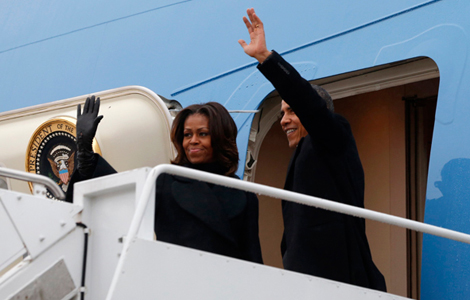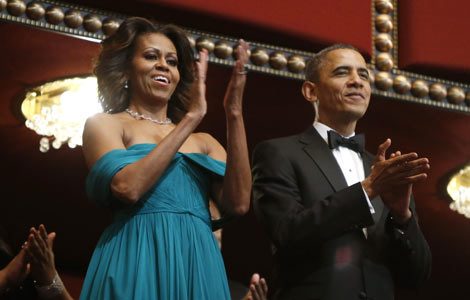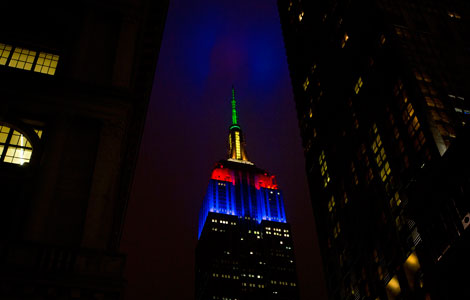

Tokyo will introduce a policy later this month to loosen its embargo on weapons exports, a move analysts said is "a major betrayal" of Japan's postwar pacifist Constitution.
The decision to replace the decades-long "three principles" on weapons exports is a component of hawkish Japanese Prime Minister Shinzo Abe's yearlong effort to help Japan reclaim the status of a major military power, observers said.
According to draft principles to control arms exports presented to the ruling coalition on Thursday, the government will permit weapons exports as long as they "contribute to Japan's national security" or meet other conditions, Japanese newspaper Asahi Shimbun reported.
NHK Television said on Monday that the draft version, by replacing the three principles, may allow "machine guns to be equipped on patrol vessels of Japan's coast guard, and weapons to be exported to Southeast Asia".
Wang Shan, a researcher on Japanese studies at the China Institute of Contemporary International Relations, said Japan's national security strategy is "under transformation". As a result, the decision to remove more restrictions from its arms-embargo policy will directly facilitate Japan's participation in transnational weapon development and purchases.
Trefor Moss, former editor of Jane's Defence Weekly, warned that Abe "needs to demonstrate that he can make Japan more secure without making it more militaristic".
"As an advocate of 'active' or 'proactive' defense, Abe wants to give the armed forces greater leeway for action, and more dynamic capabilities with which to meet external threats," Moss said in a recent article on The Diplomat magazine's website.
Japan's "three principles" on arms exports were introduced in 1967 and tightened into a virtual blanket ban in 1976.
They ban weapons exports to communist-bloc countries, countries subject to arms export embargoes under United Nations resolutions, and countries involved in or likely to be involved in conflicts.
Before being ousted by the now-ruling Liberal Democratic Party in 2012, Yoshihiko Noda's Cabinet made major revisions on such principles in 2011, allowing more latitude for weapons exports than previous tweaks.
In October, Tokyo allowed the export of Japanese-made engine parts adopted by Japan Self-Defense Forces ships to the British Navy as part of its latest attempt to overturn the existing embargo.
Policymakers in Tokyo have shown "a trend of centralizing controls" --— especially those on defense policies — to empower the central government, said Liu Jiangyong, an expert on Japanese studies and deputy dean of the Institute of Modern International Relations at Tsinghua University.
NHK said New Komeito, the junior partner of the Japanese ruling coalition and a long-time advocate of pacifism, has demanded prudence on this issue.
"The pacifist voices within Japan may suffer more heavy blows (by the trend). In contrast, the right-wing forces are free from powerful restrictions in Japanese laws," Liu said.
But the embargo topic is now highlighted by a changing context of public opinion within Japan, observers said.
Statistics shows that about 80 percent of interviewees believe that "Japan is under threat of foreign countries and may be dragged into a major war", a percentage much higher than in previous years, Wang said.
"Although Tokyo, until today, is still emphasizing the defensive side of its policy pursuits, it is undeniable that it has shown a growing desperation for military buildup, and therefore an increasing hostility against China," Wang said.
In the era of then-prime minister Junichiro Koizumi, Japan had increased its frequency of military collaboration with the United States.
Japan is quitting its sheer reliance on the military protection provided by the US, its traditional ally, Liu said.







